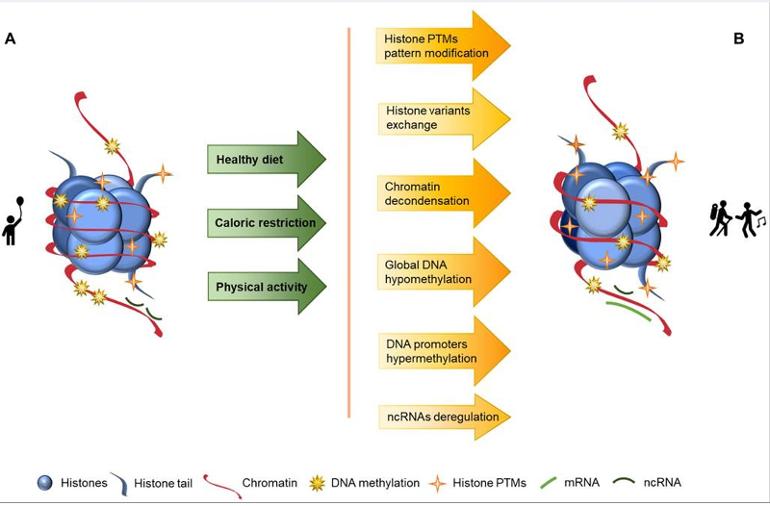The following two articles were included in post by a member over at the HU CLLSupport site. (Thanks, Kwenda.) Both are review papers that look at the effects of diet and exercise on health outcomes. The second paper is much more technical in nature and is from researchers in Portugal.
I'm including the Abstract for each below, but encourage you to read both papers in full. As review papers, each is loaded with links to more specific research that can yield more detailed content.
* * *
1) Growing old together: What we know about the influence of diet and exercise on the aging host's gut microbiome, Frontiers in Sports and Active Living, REVIEW article, Volume 5 - 2023, 17 April 2023.
The immune system is critical in defending against infection from pathogenic microorganisms. Individuals with weakened immune systems, such as the elderly, are more susceptible to infections and developing autoimmune and inflammatory diseases. The gut microbiome contains a plethora of bacteria and other microorganisms, which collectively plays a significant role in immune function and homeostasis. Gut microbiota are considered to be highly influential on host health and immune function. Therefore, dysbiosis of the microbiota could be a major contributor to the elevated incidence of multiple age-related pathologies. While there seems to be a general consensus that the composition of gut microbiota changes with age, very little is known about how diet and exercise might influence the aging microbiome. Here, we examine the current state of the literature regarding alterations to the gut microbiome as hosts age, drawing particular attention to the knowledge gaps in addressing how diet and exercise influence the aging microbiome. Further, we will demonstrate the need for more controlled studies to investigate the roles that diet and exercise play driving the composition, diversity, and function of the microbiome in an aging population.
* * *
2) How can we modulate aging through nutrition and physical exercise? An epigenetic approach, Aging, Review, Volume 15, Issue 8 pp 3191—3217
Abstract
The World Health Organization predicts that by 2050, 2.1 billion people worldwide will be over 60 years old, a drastic increase from only 1 billion in 2019. Considering these numbers, strategies to ensure an extended “healthspan” or healthy longevity are urgently needed.
The present study approaches the promotion of healthspan from an epigenetic perspective. Epigenetic phenomena are modifiable in response to an individual’s environmental exposures, and therefore link an individual’s environment to their gene expression pattern. Epigenetic studies demonstrate that aging is associated with decondensation of the chromatin, leading to an altered heterochromatin structure, which promotes the accumulation of errors.
In this review, we describe how aging impacts epigenetics and how nutrition and physical exercise can positively impact the aging process, from an epigenetic point of view. Canonical histones are replaced by histone variants, concomitant with an increase in histone post-translational modifications. A slight increase in DNA methylation at promoters has been observed, which represses transcription of previously active genes, in parallel with global genome hypomethylation. Aging is also associated with deregulation of gene expression - usually provided by non-coding RNAs - leading to both the repression of previously transcribed genes and to the transcription of previously repressed genes.
Age-associated epigenetic events are less common in individuals with a healthy lifestyle, including balanced nutrition, caloric restriction and physical exercise. Healthy aging is associated with more tightly condensed chromatin, fewer PTMs and greater regulation by ncRNAs.
* * *
Links to both full papers are here:
1) Growing old together: What we know about the influence of diet and exercise on the aging host's gut microbiome, Frontiers in Sports and Active Living, REVIEW article, Volume 5 - 2023, 17 April 2023.
frontiersin.org/articles/10...
2) How can we modulate aging through nutrition and physical exercise? An epigenetic approach, Aging, Review, Volume 15, Issue 8 pp 3191—3217
ncbi.nlm.nih.gov/pmc/articl...
Stay active and eat well (not too much with lots of fiber) to live longer and healthier lives ~ S&W,
Ciao - Kaptin K9
